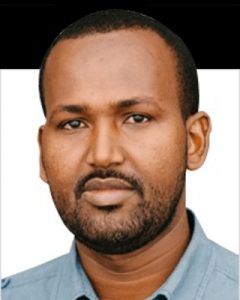Migration is back on the news agenda.
The British Home Office is set to carry out “enforcement visits” and “forcible removal” of Europeans – including their children born in the UK – who failed to meet the June 30 deadline to register for settlement in the UK. It’s thought up to 150,000 Europeans are in danger of being condemned to the status of “illegal immigrants”. Within the space of five years our neighbours and friends have been turned into “outsiders” in an alarming echo of the “hostile environment” faced by migrants from the Windrush generation.
In a parallel move, asylum seekers fleeing oppression and poverty are about to lose their right to have their claims considered in the UK. A new bill proposes that processing centres be set up in Africa, where asylum seekers and refugees will have no right to appeal a decision. The EU too faces increased claims that its asylum, refugee and border policies have led to human rights violations, undue criminalisation and complicity in atrocity crimes committed against migrants at sea.
It’s ironic that these measures come at a time when a dire shortage of lorry drivers, nurses and construction workers threatens to leave British supermarket shelves empty, a rise in inflation and hospital wards closed. They are also in stark contrast to the welcome the UK is giving to migrants from Hong Kong. (Some 300,000 are eligible to apply, potentially the biggest migration to the UK outside Europe since 50,000 Ugandan Asians were expelled by Idi Amin in 1972).
What responsibility do journalists face when reporting on migration? Should journalists accept the UK government’s distinction between deserving and undeserving migrants? What are the dangers history teaches us about “othering” minorities and vulnerable groups? What difficulties do journalists face in getting to the truth of how asylum seekers and other migrants are treated?
These and many more questions will be examined by a panel of speakers organised by the Ethical Journalism Network looking at the reporting of migration and asking how the media should shape the public view of migrants in these changing and challenging times for the UK.
Watch the video of this event
Our panel:






The event will be chaired by Rizwana Hamid, Director of the Centre for Media Monitoring and EJN UK Committee member.
Our panel includes:
Amelia Gentleman is a multi-award-winning journalist who spent six months working on the Windrush scandal for The Guardian which had led to the illegal deportation of Afro Caribbean people who had settled here for decades. She is the author of The Windrush Betrayal: Exposing the Hostile Environment which details the scandal and the effects it had on people’s lives.
Jamal Osman is a Somali-born award-winning journalist, broadcaster and filmmaker. He is the Africa Correspondent for Channel Four News and has written articles for The Guardian and reported for Al-Jazeera English. His scoops include interviews with Somali pirates, the al-Qaeda-linked Islamist group, Al-Shabab, and an exposure of the illegal trade in UN food aid.
Marzia Rango is the data innovation and capacity building co-ordinator at the International Organisation for Migration in Berlin and is currently managing a project focusing on migration across the Mediterranean to Central Europe. She will be able to give an overall picture of the scale of migration.
Benedict Rogers is the co-founder and chief executive of Hong Kong Watch and co-founder and deputy chairman of the Conservative Party’s Human Rights Commission. He is a human rights activist and a journalist who has written extensively on the plight of people in Hong Kong where democracy is being suppressed by the Chinese authorities.
Chantal da Silva is a freelance journalist who helped expose the appalling conditions asylum seekers face in Napier Barracks despite attempts by the Home Office to hide what was happening. She works for numerous publications including the Independent, the Bureau of Investigative Journalism, Channel 4 and many other TV channels. She focuses on immigration rights.
This is a “pay what you can afford” event. If you are able to donate £10 to support EJN’s work, please do so. If not, please sign up for a free ticket with no questions asked.